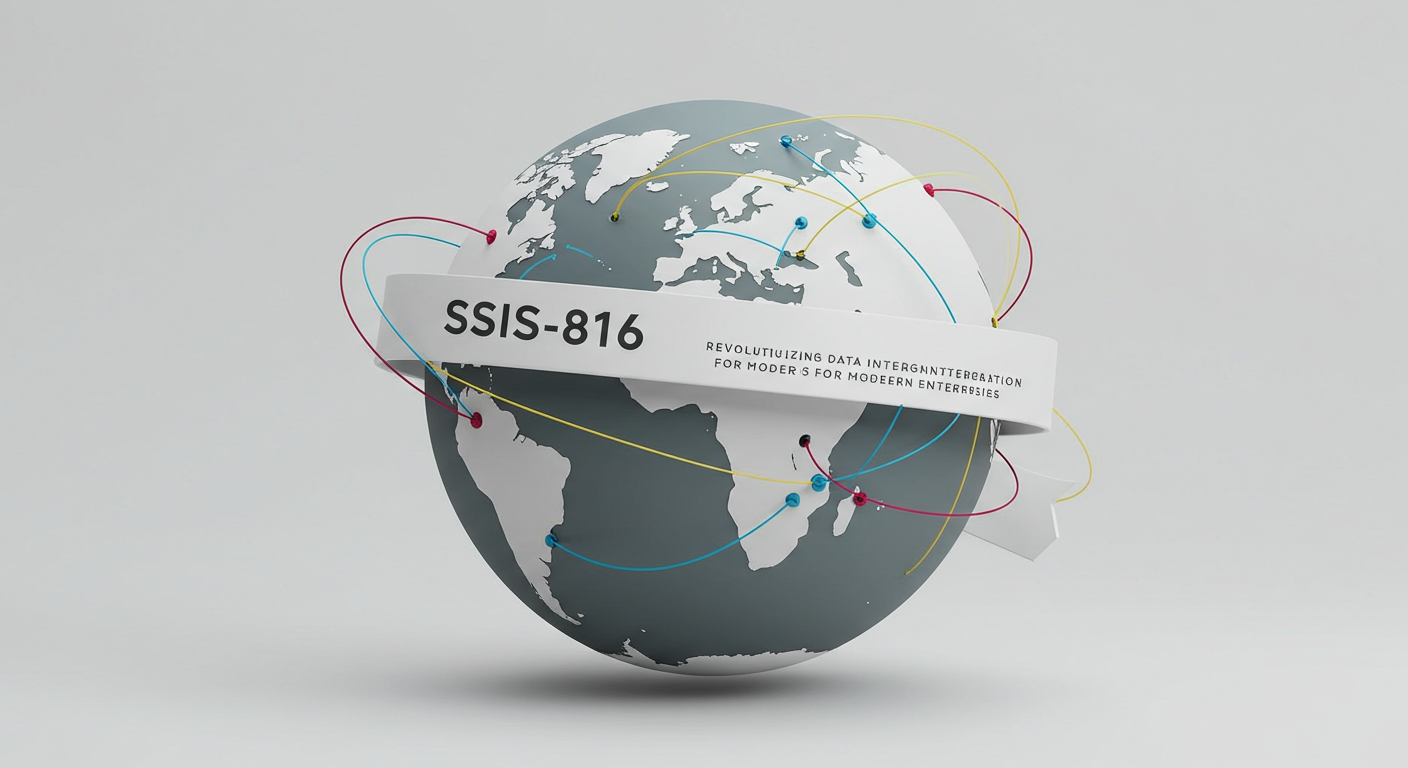Introduction to SSIS-816
In today’s rapidly evolving digital landscape, data plays a crucial role in shaping strategic decisions. One of the most trusted tools in the world of data integration is a comprehensive solution designed to streamline data handling and processing tasks. Whether you manage small-scale databases or vast data warehouses, offers robust functionality that ensures efficient, secure, and reliable data transformation.
This guide explores its main features, advantages, industry applications, and why it has become essential for businesses that seek optimized data management solutions.
What Exactly is SSIS-816?
short for SQL Server Integration Services version 816, is a data integration platform developed by Microsoft. It is an advanced tool used to extract, transform, and load (ETL) data across various systems, applications, and databases. With organizations can manage large volumes of data seamlessly while maintaining consistency and quality.
The tool allows developers and database administrators to design automated workflows that process data according to business requirements, reducing human error and improving efficiency across departments.
Core Features of SSIS-816
comes packed with innovative features that cater to diverse data management needs:
1. Extensive Data Source Support
connects effortlessly with various databases, flat files, cloud services, and enterprise software, making data movement smooth and effortless.
2. High Performance
Optimized for faster data transfer and transformation, SSIS-816 handles complex ETL tasks with minimal latency.
3. Strong Security Features
With built-in encryption and authentication methods,\ ensures that sensitive data remains protected during every stage of processing.
4. Advanced Workflow Design
The platform includes drag-and-drop visual tools that enable the creation of complex workflows without requiring extensive coding expertise.
5. Scalable Architecture
From small businesses to large corporations,adapts to different operational sizes, making scalability one of its strongest suits.
Benefits of Using SSIS-816 for Data Integration
Organizations that implement SSIS-816 enjoy a wide range of advantages, which include:
1. Improved Data Quality
Data cleansing and validation features within ensure that only accurate and relevant data enters the system, minimizing errors downstream.
2. Automation Capabilities
Automated scheduling and execution of ETL processes reduce manual intervention, saving time and reducing the risk of human mistakes.
3. Seamless Integration
bridges data silos across departments, allowing for a unified view of organizational data that enhances reporting and analysis.
4. Cost Efficiency
By streamlining data processes, helps cut down on operational expenses, contributing to higher profitability.
Practical Applications of SSIS-816 in Various Industries
The adaptability of SSIS-816 makes it suitable for a variety of sectors, including:
1. Healthcare
Hospitals and medical research centers utilize to manage patient records, track treatments, and ensure compliance with healthcare data regulations.
2. Finance
Banks and financial institutions use SSIS-816 for fraud detection, financial forecasting, and consolidating data from multiple sources for analysis.
3. Retail
Retailers apply to synchronize inventory, process sales data, and personalize customer experiences based on purchasing history.
4. Education
Universities and schools rely on to manage student records, faculty data, and learning resources effectively.
Challenges Associated with SSIS-816
Despite its many benefits, SSIS-816 does present some challenges:
-
Learning Curve: New users may require time and training to utilize the platform to its full potential.
-
Resource Consumption: Processing large datasets may demand significant hardware resources.
-
Complex Maintenance: Keeping environments updated and secure can require dedicated IT support.
However, these challenges can be managed through proper planning, investment in training, and regular system audits.
Comparing SSIS-816 with Other Data Integration Tools
To understand the uniqueness of SSIS-816, here’s a comparison with popular alternatives:
| Features | SSIS-816 | Informatica | Apache Nifi |
|---|---|---|---|
| SQL Server Integration | Excellent | Moderate | Limited |
| Ease of Use | User-Friendly | Moderate | Easy |
| Security Features | High | High | Moderate |
| Cloud Integration | Advanced | Advanced | Limited |
| Performance | Optimized | High | Average |
stands out for its seamless integration with Microsoft environments and superior performance for large-scale ETL tasks.
The Future Outlook for SSIS-816
As businesses continue to embrace digital transformation is set to evolve with emerging technologies such as:
-
Artificial Intelligence: Enhanced predictive analytics and automation of ETL pipelines.
-
Cloud Compatibility: Deeper integration with Azure services for hybrid and cloud-first solutions.
-
Real-Time Data Processing: Improved support for streaming data, enabling faster insights and decision-making.
Best Practices for Successful SSIS-816 Deployment
To make the most of SSIS-816, companies should adopt these best practices:
-
Regular Updates: Ensure the platform is always running the latest version to benefit from security patches and new features.
-
Performance Monitoring: Track system metrics to optimize ETL package performance.
-
Detailed Documentation: Maintain clear records of package configurations and workflows.
-
User Training: Invest in staff training to ensure all users can operate efficiently.
Conclusion: Why SSIS-816 is a Must-Have for Modern Enterprises
In the data-driven age, serves as a cornerstone for efficient, secure, and scalable data integration. Its ability to handle vast amounts of data while maintaining quality and performance makes it an indispensable tool for organizations aiming for digital excellence.
Whether in finance, healthcare, retail, or education,\ delivers unmatched value by transforming raw data into meaningful insights that drive growth and innovation.
